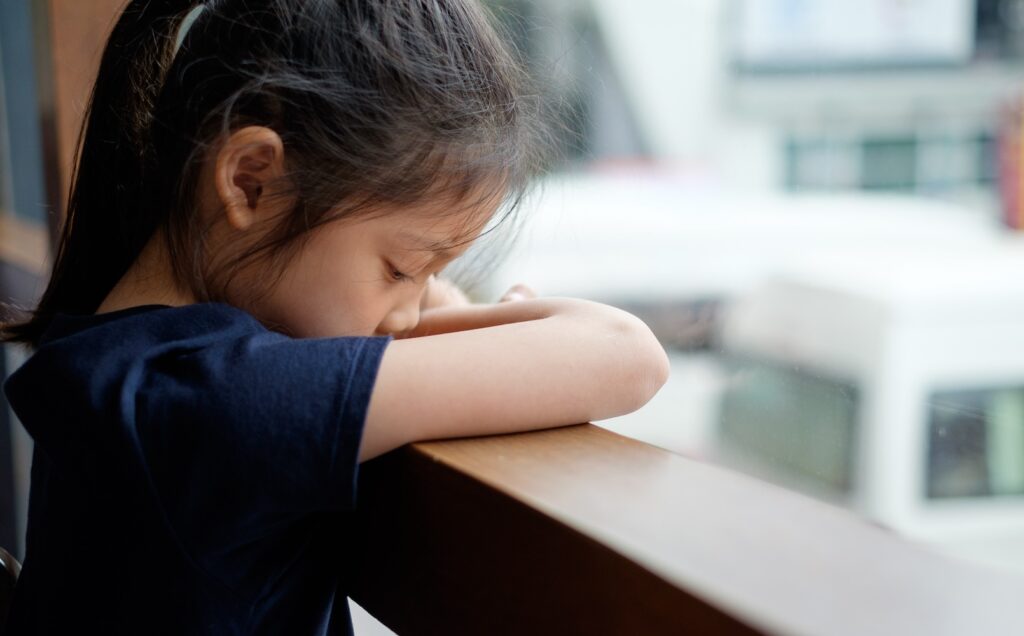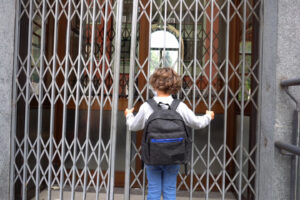China stops international adoptions, leaving hundreds of children, families in heartbreak
The Chinese Foreign Ministry abruptly announced that the country will no longer allow foreign adoption of Chinese children, as Communist China continues to isolate itself from the West.
“Apart…

The Chinese Foreign Ministry abruptly announced that the country will no longer allow foreign adoption of Chinese children, as Communist China continues to isolate itself from the West.
“Apart from the adoption of a child or stepchild of blood relatives of the same generation who are within three generations of foreigners coming to China to adopt, China will not send children abroad for adoption,” said Foreign Ministry Spokeswoman Mao Ning, according to Reuters.
Mao expressed appreciation to the families who have been willing to give Chinese orphans a home for the “good intention and the love and kindness they have shown.”
But the rapid policy change has broken the hearts of some families who have been waiting on adoption of specific children since before COVID-19.
“We want answers,” Laurie Carey from Birmingham, Alabama told NPR. “We wonder what the kids who had pictures of us and videos of us – do they think, ‘Oh I’ve been abandoned again?’”
Carey said that she and her husband were matched with a 3-year-old boy in July 2020, but since then have been kept in the dark by Beijing’s Communist regime.
“‘Just be patient’ is what we were told for four years, ‘just be patient,’ which is hard when you have a child on the other side of the world and your whole life is kind of wrapped up in this,” she told NPR.
Karla Thrasher, senior director of international adoptions at Lifeline Children’s Services based in Birmingham, said that just in their center alone there are 48 families waiting on adoptions that were matched before the COVID-19 pandemic swept the world.
“They were definitely in shock. This came very suddenly,” Thrasher told the Baptist Press about adopter family reactions. “We actually had thought things were moving in a more positive direction over the past couple of weeks, and then received this email out of the blue regarding China no longer carrying out the foreign adoptions.”
The Taipei Times reports that the U.S. State Department is seeking clarification from Beijing about the status of adoptions currently in progress.
But in a phone call with U.S. diplomats, China said that the termination of the program applies to all cases outside the exceptions for blood relatives noted in the policy statement, according to the Taiwan news outlet.
Over 120,000 children, mostly girls, have been adopted overseas from China, including 82,674 sent to the U.S. since China adopted a strict one-child policy in 1992.
In Chinese culture, male babies are more highly prized for their future earning power and their ability to take care of the central family with commercial patronage.
Families having a female baby during the one-child era often flouted the law and sent small daughters to live with relatives or strangers as orphaned cousins or sent them outright to state orphanages.
One woman, who requested anonymity, told The Lion about how she lived in a remote village, far from her parents for 20 years, never able to talk with anyone about her parents, who had more than three children.
She lived in constant fear until the one-child policy was stopped in 2015 that she would be caught, and her family would be sent to a labor camp.
While the Chinese government will likely never explain why they decided at this time to stop overseas adoptions, China is facing a severe population collapse that has witnessed the population decline for the second year in a row, according to Reuters.
The contraction is part of a worldwide population collapse, as previously reported by The Lion.
A forecast by the United Nations has the country’s population “set to fall from 1.426 billion in 2022 to 1.313 billion in 2050 and drop below 800 million by 2100,” said the Center for Strategic and International Studies.
But for Thrasher, at Lifeline Children’s Services, and for others trying to adopt kids who need homes, the most important numbers are much smaller.
“Several of these families had actually met their children and spent time with them through a program that we have where we host children here in the United States,” Thrasher said, according to Christianity Today. “Several of these children had been a part of that hosting program where they had come to the U.S., actually spent time in the family’s home, so these families knew these children.”
The results for some kids will be devastating, said one would-be mother, Aimee Welch from Louisville, Kentucky, who was weeks away from meeting her new daughter in China, when COVID-19 hit.
“It’s a closed door with no closure,” she told NPR. “And to think about this little girl, we promised to come for her. As a 6-year-old, how could she process the reason why we weren’t coming when we said we could.”



